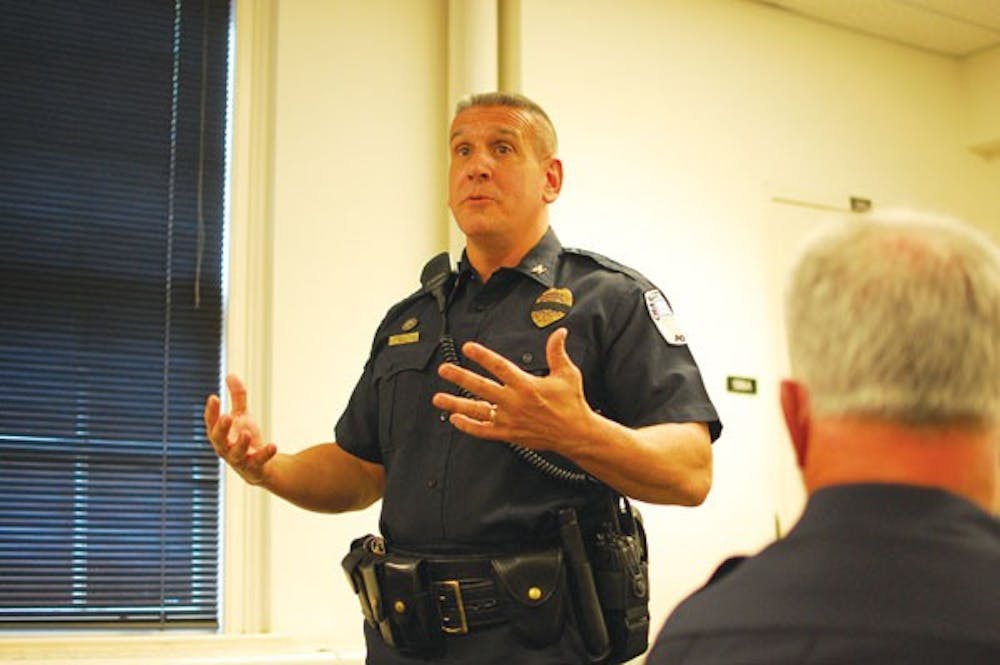Several minority student organizations met with University and Charlottesville police officers yesterday night in New Cabell Hall in an attempt to raise awareness about protocol in bias-motivated incidents. Roughly 30 students, faculty and community members attended the meeting organized by the Black Student Alliance.
University Police Chief Michael Gibson, along with Lt. Mike Blakey and Charlottesville Chief of Police Tim Longo, spoke at length about procedures when reporting bias incidents and also discussed how to interact with police officers and how police departments strive to gain trust with communities. The forum comes in the wake of a bias incident on the Corner last spring when a group of white male students verbally accosted two female students, one of whom was a minority, repeatedly using racial slurs.
"Any time an incident happens that is bias-based, I think it causes concerns," Dean of Students Allen Groves said. "It has a ripple effect beyond that victim. Many people can see themselves in that circumstance."
The police officers spoke of actions that can be taken if students face bias, whether from another student, a member of the Charlottesville community or from a police officer. Gibson encouraged students to report any incidents using the Just Report It system on the Office of the Dean of Students' website.
The officers also noted, though, that there is often an ambiguous boundary between free speech and intimidating behavior.
"While it may be hurtful, from a law enforcement standpoint, unless it [hate speech] accompanies a threat, there's not much we can do," Gibson said. Threats, Longo said, can include moving toward someone or possession of a weapon. To qualify for a disorderly conduct charge, words must instigate a party to hostile actions.
Students in attendance also brought up perceived actions of bias by police officers, including the reported presence of more cops at predominantly black parties compared to predominantly white parties. Longo attributed this discrepancy to differences in police procedure when operating on Grounds compared to off Grounds, and closer monitoring of areas where "there have been incidents in the past." Longo also stated that police often respond to calls or noise complaints, and students can check the status of complaints placed against a residence by contacting the police department.
"I think that [students'] principled reasoning behind [suspecting racial bias] is the color of their skin because that's the most visible characteristic of a person, not that it should be," said Jonathan Bryan, vice chair of the University's NAACP chapter. "The negative presence is over-emphasized."
Dean Groves said the Corner incident last spring motivated a panel discussion with students during the summer about what actions the University can take when bias incidents occur. He could not say whether the student responsible for the verbal assault had faced discipline. Because the U.S. Constitution only applies to state and federal governments, state institutions such as the University cannot take further action to discipline students beyond the reach of the law. Should a similar incident occur at a private institution, however, further steps could be taken.
"We are able to say as a university that we reject this behavior, even if we can't discipline," Groves said.







